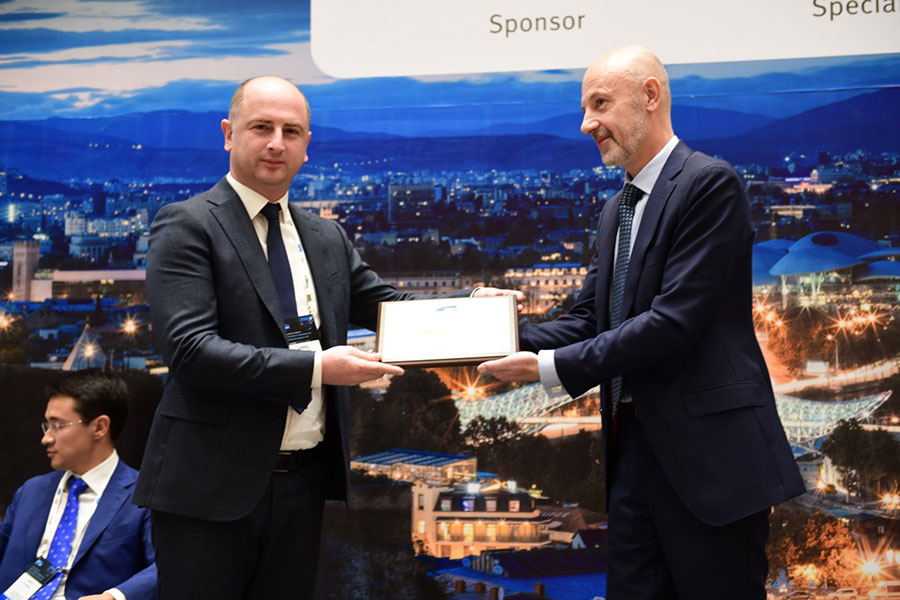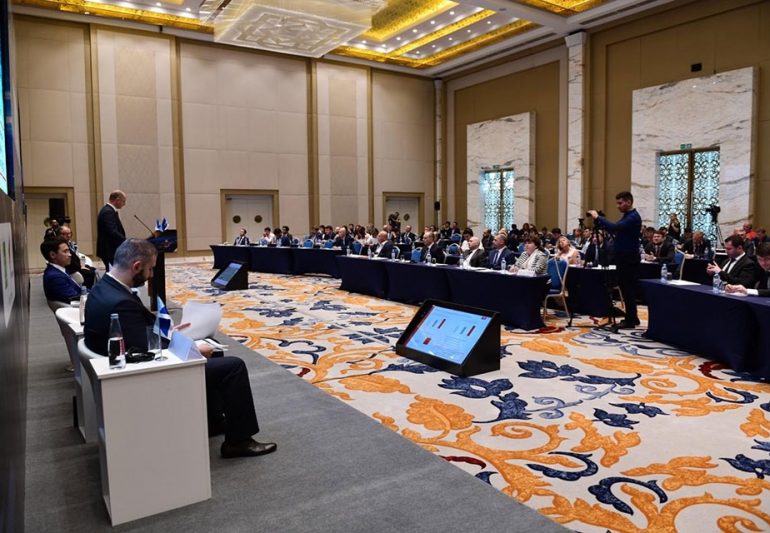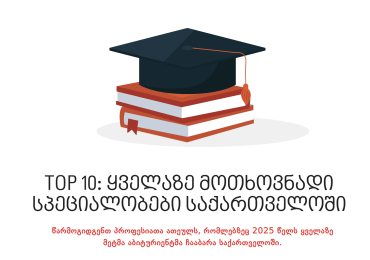The fifth Argus Caspian and Black Sea Transportation Corridor conference was held on 12-13 September in Tbilisi, Georgia.
Every year, participants from various markets – including crude, products, fertilizers, bulk and general cargo, and transport and logistics – as well as representatives of ports, terminals and government agencies, meet to discuss the situation in the Caspian and Black Sea region and the prospects for the transport corridor.
This year’s general partner was GR Transit, while the strategic partner was Petrocas Energy Group. The event was also supported by GR Transit Line, Wondernet Express, Cross Caspian Oil and Gas Logistics and international association the Trans-Caspian International Transport Route (TITR).
More than 150 participants from 15 countries attended, including Georgia, Azerbaijan, Kazakhstan, Turkmenistan, Russia, the UAE, Switzerland and Pakistan. These included officials from the region’s largest companies, including Georgian Railways, Socar, SGS, Turkmen Petroleum, ADY Express, Aktau International Commercial Sea Port, Batumi Sea Port, Kazmortransflot, KTZ, Novorossiysk Port and others. The conference was also attended by government representatives, including from Georgia’s Economy and Sustainable Development Ministry, Turkmenistan’s Rail Transport Ministry, and officials from the embassies of neighboring countries.
Delegates were welcomed by Mikhail Doubik, head of Argus Media in Russia and the FSU, Irma Kavtaradze, Georgia’s Deputy Minister for Economy and Sustainable Development, and David Chiradze, Director of GR Transit.
David Peradze, Chief Executive of Georgian Railways, spoke about the cargo transit scene and the prospects for the transport corridor.
And Argus analyst Evgeny Krishtalev delivered a presentation in which he considered new opportunities for development of the Caspian and Black Sea transport corridor, noting the potential for an increase in delivery of dry bulk and containerized cargoes.
At the end of the first session, Georgy Gvetadze, Petrocas Energy’s Operations Director, discussed recent developments in the South Caucasus of the Caspian and Black Sea transit corridor.
The second session looked at container traffic growth in the Caspian and Black Sea region.
Leyla Batyrbekova, TITR Deputy Secretary General, presented an overview of container transportation from China and central Asia to eastern Europe, noting its increasing importance.
Mamuka Merkviladze, Chief Executive of GR Logistics and Terminals, spoke about expanding the range of container cargoes delivered in the region, as well as the advantages of container transportation and the need for its further study and development.
During subsequent sessions, participants focused on rail transit through the Caspian and Black Sea region and trends in dry bulk transportation.
The first day of the conference ended with an evening reception featuring Georgian national cuisine and performances by folk groups.
On the second day, delegates saw presentations of new infrastructure projects in the Caspian and Black Sea basin, including Wondernet Express’ multimodal transit terminal, the deepwater port of Anaklia, the Absheron logistics centre, and schemes at the ports of Kuryk, Aktau and Turkmenbashi.
Argus extends its thanks to all who attended in Tbilisi and looks forward to seeing them at next year’s event.

"Forbes Georgia-ის სარედაქციო ბლოგპოსტების სერია "როგორ გამდიდრდა“ და "საქართველო რეიტინგებში".

















